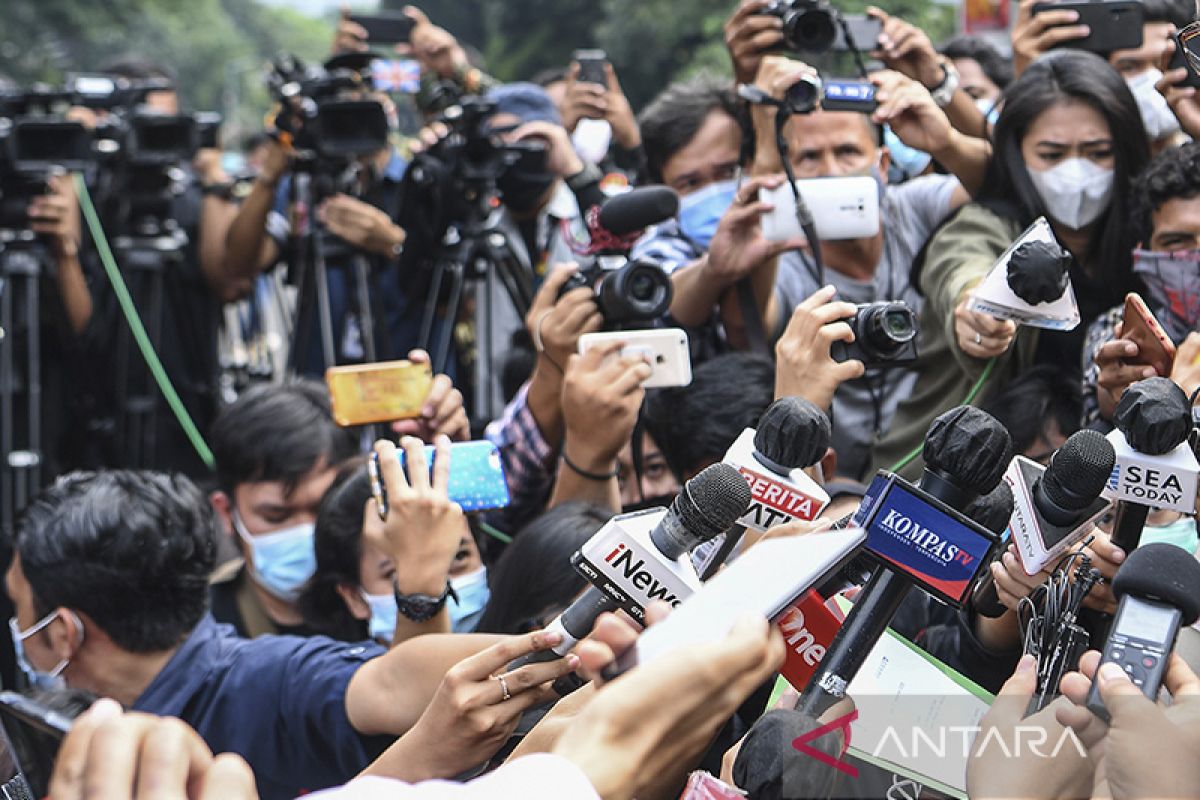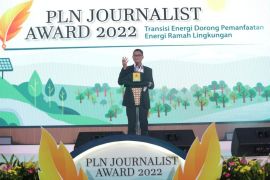The index shows a score of 59.8 out of 100, or in the "somewhat protected" category.
The score (59.8) falls below the Press Council's 2023 Press Freedom Index (71.57, categorized as "quite free"), but is higher than Reporters Without Borders' 2023 World Press Freedom Index (54.83).
Based on the 2023 Journalist Safety Index, 45 percent of journalists out of 536 respondents said they had experienced violence at work in 2023, including 49 percent of 175 female journalist respondents.
The violence most often experienced by the respondents was in the form of a ban on coverage, at 46 percent, and a ban on reporting, at 41 percent.
Populix social research manager Nazmi Tamara explained the index considers three main pillars: individual journalists, stakeholders like media companies, and the role of the state and regulations.
The index preparation used a mixed method that includes quantitative and qualitative methods. In terms of the quantitative method, a survey was conducted on 536 active journalist respondents, comprising 361 male journalists and 175 female journalists.
For the qualitative method, focus group discussions (FGD) and in-depth interviews were conducted with several stakeholders.
Data collection was conducted from January 1, 2024, to February 13, 2024. The margin of error was not set, as several questions may have multiple answers.
Responses
Director of Media Management at the Ministry of Communication and Informatics, Nursodik Gunarjo, stated that the latest Journalist Safety Index can be a reminder to the community to maintain the work safety of journalists.
The government is open to accepting proposals on regulations from press industry players to ensure the work safety of journalists, which can be realized through the House of Representatives (DPR).
Apart from that, proposals on regulations that regulate journalists' work safety can also be conveyed to the Ministry of Manpower or even the Press Council, which is mandated by law to protect the freedom of the press and improve the quality of life of the press.
The government has accommodated requests to regulate cooperation between media companies and digital platforms, so that Presidential Regulation Number 32 of 2024 concerning the Responsibilities of Digital Platform Companies to Support Quality Journalism, known as Presidential Regulation on Publisher Rights, was finally issued.
Executive Director of the Legal Aid Center for the Press (LBH Pers), Ade Wahyudin, stated that the aspect of journalists' safety must be synchronized with Law Number 1 of 1970 on Work Safety.
Journalists' safety must be discussed comprehensively, not only about the issue of violence but also about a safe and comfortable work environment.
Chair of the Alliance of Independent Journalists (AJI), Sasmito Madrim, stated that a national action plan regarding journalists' safety is needed, as the Press Law technically has not regulated holistic cooperation to prioritize journalists' safety.
Currently, efforts to ensure the safety of journalists are considered to still require many procedures, so action cannot be taken quickly, for instance, when a victim needs a safe house facilitation from the Witness and Victim Protection Agency (LPSK).
The national action plan can also be realized in the form of a special law that regulates the safety of journalists, so that coordination between ministries, institutions, and other parties can run better going forward.
Madrim also highlighted the number of cases of violence against women journalists based on the 2023 Journalist Safety Index, which shows that the conditions currently need intervention. Hence, standard operating procedures (SOP) for media companies in Indonesia need to be reviewed.
The association assessed that media companies in Indonesia have understood the importance of journalists' work safety, though there are still hindrances in terms of resources to support journalists' safety.
To this end, the state is expected to play a role in helping media companies in Indonesia so that support for the safety of journalists can be maximally provided.
Law Expert Staff of the Press Council Hendrayana stated that his side is relying on the Task Force on Violence Against Journalists to handle reports on violence against journalists, both physical and digital-based violence.
In terms of prevention, the Press Council also routinely gives guidance to media companies and urges them to provide SOPs that are expected to be able to maintain the safety of journalists while on duty.
Those SOPs may include those on handling sexual violence against journalists, guidelines for reporting in conflict areas, and handling physical violence experienced by journalists while working.
The National Commission on Human Rights (Komnas HAM) noted that it had responded to reports from journalists by creating several standards and guidelines.
Komnas HAM Human Rights Enforcement Sub-commission Coordinator Uli Parulian Sihombing stated that his institution had published standards regarding human rights defenders, which also explains the role of journalists.
The commission has also created standards regarding the right to freedom of opinion and expression. The commission is recommending a restorative justice approach for defamation cases targeted at journalists.
From 2018 to 2024, Komnas HAM received seven reports from journalists, comprising five cases of verbal threats and two cases of physical violence.
Media and journalism observer Dadang Rahmat Hidayat from Padjadjaran University stated that the 2023 Journalist Safety Index shows a moderate figure, meaning that it is not worrisome, though protection needs to be increased.
In the context of protection, cooperation between journalists, media companies, and the state is deemed necessary.
Journalists must understand the risks and ways to protect themselves while working, whereas media companies must provide protection for journalists at work. Meanwhile, the state can provide protection through regulations.
Issues affecting journalists' safety can be regulated in the Work Safety Law or through the Press Council Regulation. Nevertheless, awareness regarding journalists' safety should start before a work agreement between a journalist and a media company is agreed upon.
Baca juga: Zurich Indonesia bagikan 1.000 asuransi kecelakaan gratis
Baca juga: Balai lelang JBA berikan manfaat anggota melalui Mega Insurance
Thus, the agreement will not only discuss salary and welfare but also rights and obligations related to safety at work.
Of course, comprehensive action is needed to improve the Journalist Safety Index in the coming years to ensure the safety of journalists at work.
Pewarta : Rio Feisal, Raka Adji
Editor:
I Komang Suparta
COPYRIGHT © ANTARA 2026









